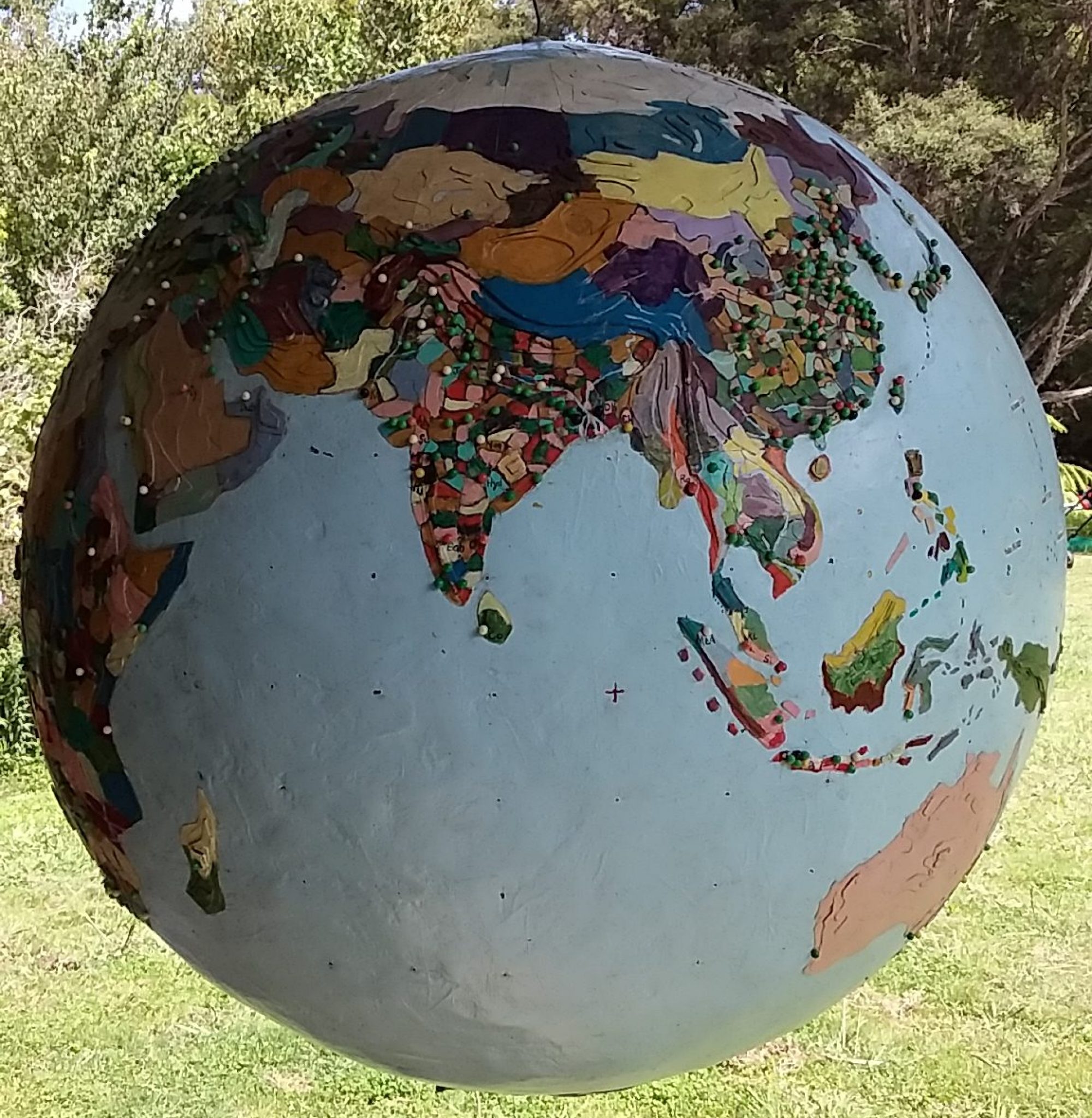Heart of darkness
Millisphere (noun): a discrete region inhabited by roughly 1000th of the total world population.
If I were to travel to the Central African Republic (CAR) I’d be tempted to take the Congo-Ocean Railway from the Atlantic coast to Brazzaville in the Democratic Republic of Congo. This is not without its risks; in 2010 four carriages derailed into a ravine and 60 passengers died.
Above the Stanley Falls one can ride on a barge up the Congo and into the setting of Joseph Conrad’s novel Heart of Darkness. By taking another boat up the Oubangui it is possible to reach Bangui, the capital of the CAR (population 4.7 million).
Wikitravel at present advises: WARNING, the CAR is in the midst of a violent poverty-fueled state of civil war and most governments advise against travel to the region. Travelers should leave immediately if they can find a safe exit route. The CAR is possibly the most dangerous country for locals and tourists alike!
Due to the kidnapping of government officials, humanitarian and United Nations workers the British Foreign Office ranks the CAR at 4th of the 17 most dangerous countries in the world. Add extra-judicial killing, torture, beatings, rape, mob-violence, human trafficking, forced labour, inter-tribal genocide and child labour and you wonder why anyone would want to go there.
Anyway, should my travel companion and I get to Bangui we’d check out the historic Notre-Dame of Bangui cathedral. According to Tripadvisor it is one of the best examples of French colonial architecture, in its original state, in Africa.
700,000 “Central Africans” live in Bangui. CAR has 80 different ethnic groups and is 50 percent Christian, 35 percent indigenous believers and 15 percent Muslim (mostly in the north). Half the population is illiterate and 11 percent is HIV positive. On the UN HDI (human development index) CAR ranks 188 out of 188. And the World Bank ranks it at 183 out 183 for the ease of doing business.
Despite being rich in diamonds, gold, oil, uranium, cobalt, lumber, hydroelectric potential and arable soil growing cotton, coffee and tobacco, it is one of the world’s poorest countries. Two-thirds of CAR is in the Oubangui river basin, where most of the people live. The CAR is mostly savannah grassland with equatorial jungle in the south and deserts in the north.
Between independence in 1960 and 2016 the population quadrupled to its present 4.7 million – doubling every 28 years – but life expectancy is only around 50. Seventy percent of CAR girls are married before they turn eighteen and women live in fear of been accused of being a witch or sorceress and causing death or misfortune.
Back in the 16th and 17th centuries black slaves were sold by other ethnic groups down the Congo to end up in the Americas. In the 19th century Muslim traders arrived from the north and by 1850 slave traders were coming with armed soldiers to take slaves to the Mediterranean. In “the scramble for Africa,” in the late 19th century, Belgian, German and French colonists came and set up plantations using forced labour.
In 2012 the Muslim Seleka Group overran the north and centre of the CAR and in 2013 the Muslim rebels seized power in this Christian majority country. In 2014 3000 United Nations, 6000 African Union and 2000 French forces helped the Christian Anti-Balaka retake Bangui.
From Bangui roads head north to Cameroon, Chad and Sudan. The Christians have forced the Muslims out of the capital and hold the Oubangui basin and the south-west of the country. The Muslims hold the north-east and the watersheds to Lake Chad and the Nile. In between is an ongoing “bush war”.
The November 2008 edition of the National Geographic reported that the CAR was the country that was the least affected by light pollution – I suspect it still is. National Geographic said that in northern CAR “the clear desert night skies are spectacular.” It would be something to see.
Generally my travel companion is up for going out where the buses don’t run but we’re attempting to have a house built at the moment – and that could take quite some time.
